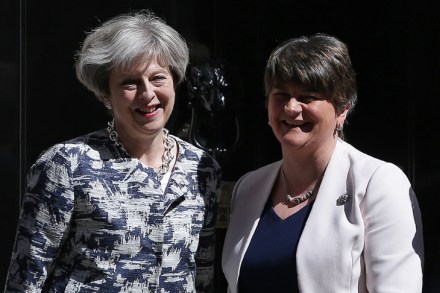Stronger together
There is unlikely to be much of a legacy from Theresa May’s premiership, which could yet be truncated a short way into its second year. Yet one very good thing looks like coming out of it: the strengthening of the United Kingdom. The Union suddenly looks in better health than it has done for several years. Nicola Sturgeon did not quite scotch her dream of a second independence referendum this week, but in delaying the required legislation until the autumn of 2018 at the earliest she has bowed to the inevitable. She has been sent, as the Scottish national anthem says, homeward tae think again. Meanwhile, the importance of Northern



















